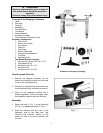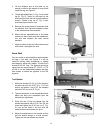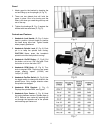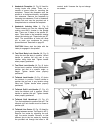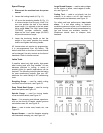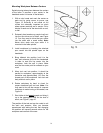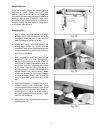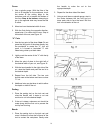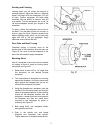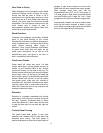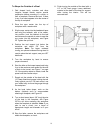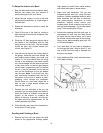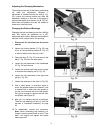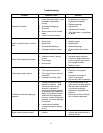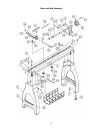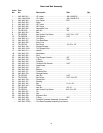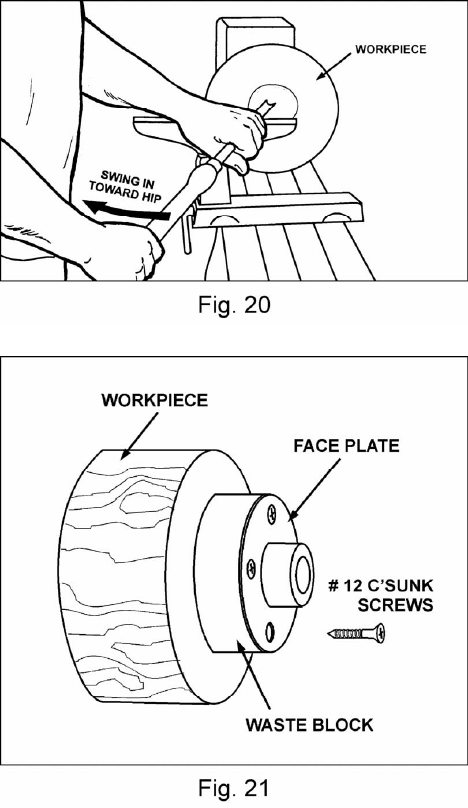
17
Sanding and Finishing
Leaving clean cuts will reduce the amount of
sanding required. Adjust the lathe to a finishing
speed, and begin with fine sandpaper (120 grit
or finer). Coarser sandpaper will leave deep
scratches that are difficult to remove, and dull
crisp details. Fold the sandpaper into a pad; do
not wrap sandpaper around your fingers or the
workpiece.
To apply a finish, the workpiece can be left on
the lathe. Turn the lathe off and use a brush, or
cloth to apply the finish. Remove excess finish
before restarting lathe. Allow it to dry and sand
again with 320 or 400 grit sandpaper. Apply
additional coats of finish and buff.
Face Plate and Bowl Turning
Faceplate turning is normally done on the
inboard side of the headstock over the bed; see
Figure 20.You must move the headstock to the
end of the lathe bed for larger workpieces.
Mounting Stock
Use of a faceplate is the most common method
for holding a block of wood for turning bowls,
and plates, see Figure 21.
1. Select stock at least 1/8" to 1/4" larger than
the dimension on the desired finished
workpiece.
2. True one surface of workpiece for mounting
against the faceplate. It is best to leave extra
stock against the faceplate that can be cut
off when the workpiece is finished.
3. Using the faceplate as a template, mark the
location of the mounting holes, and drill pilot
holes of the appropriate size. If the mounting
screws on the faceplate interfere with the
workpiece, a waste block can be mounted to
the faceplate and then the waste block
mounted to the workpiece by gluing or
screwing, see Figure 21.
4. Both waste block and workpiece should
have good flat surfaces.
5. Push in the spindle lock and thread
faceplate and workpiece onto spindle.
Tighten setscrews in faceplate when secure.



